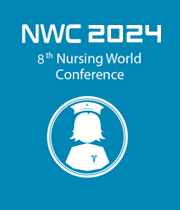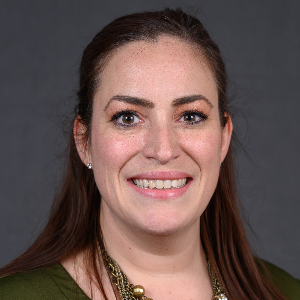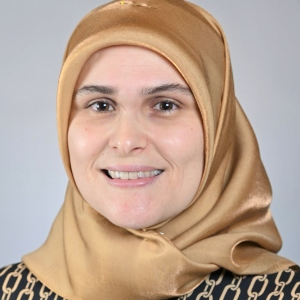Tracy O Brien, University of Pittsburgh, United States
Background: Vancomycin is a powerful antibiotic that is used to treat many infections. The monitoring of this medication (peak and trough) is extremely critical to its effectiveness. Vancomycin discrepancies have increased by 17.4% over 15-months. Aims: The aim is to d [....] » Read More


































































Title : Value based care: Implications for nursing
Adele Webb, Strategic Education, Inc., United States
Value Based Care Value Based Care (VBC) is being incorporated more and more in our healthcare organizations. For practicing nurses, little information has been provided to educate them on the definition as well as the impact on the care they provide. VBC offers nurses the opportu [....] » Read More
Title : Strengthening the nursing profession: The new paradigm of mentorship
Robin Adams Geiger, Ingenovis Health, United States
The nursing profession is undergoing a transformative shift in response to the dynamic challenges of modern healthcare. This session explores the emerging paradigm of mentorship as a powerful catalyst for strengthening the nursing profession. Mentorship is evolving beyond its tra [....] » Read More
Title : Establishing a systems-based approach for mastery learning of IV therapy and ultrasound guided peripheral catheter insertions
Nancy L Moureau, PICC Excellence, Inc, United States
As more and more clinicians seek to improve skills with IV Therapy peripheral catheter insertions, and with the use of ultrasound-guided applications, facilities are striving to establish education with a level of quality and accountability for these procedures. Attention is need [....] » Read More
Title : Exploring and responding to increasing burnout among higher education nursing faculty in the United States
Shannon McCrory Churchill, D’Youville University, United States
Nursing faculty are at high risk for stress and burnout. This risk is poised to worsen with the current nursing faculty shortage. According to AACN’s report on 2022-2023 Enrollment and Graduations in Baccalaureate and Graduate Programs in Nursing, U.S. nursing schools [....] » Read More
Title : Exploring and responding to increasing burnout among higher education nursing faculty in the United States
Abigail Mitchell, D’Youville University, United States
Nursing faculty are at high risk for stress and burnout. This risk is poised to worsen with the current nursing faculty shortage. According to AACN’s report on 2022-2023 Enrollment and Graduations in Baccalaureate and Graduate Programs in Nursing, U.S. nursing schools [....] » Read More
Title : Integrating undergraduate health humanities education as a collaborative approach to compassionate, transformational healthcare
Christine Kuchenrither, Baldwin Wallace University, United States
Background: The healthcare environment remains complex, with countless challenges, which greatly impact the healthcare system’s ability to meet the unique needs of the populations they serve. The World Health Organization (WHO) and the National Academy of Medicin [....] » Read More
Title : Integrating undergraduate health humanities education as a collaborative approach to compassionate, transformational healthcare
Yvonne M Smith, Baldwin Wallace University, United States
Background: The healthcare environment remains complex, with countless challenges, which greatly impact the healthcare system’s ability to meet the unique needs of the populations they serve. The World Health Organization (WHO) and the National Academy of Medicin [....] » Read More
Title : Nurse coaching within the hospital
John Piazza DeDonatis, Providence St. Vincent Medical Center, Lifestyle Transformation Nurse, United States
My presentation will be based on my experience Health & Wellness Coaching as a Board Certified Nurse Coach within the Hospital I work for. I will go into detail about how my work as a Nurse Coach came to fruition within the Hospital including discussions with my manager and C [....] » Read More
Title : Increasing throughput using lean methodology
Jeffrey Hammond, New York Presbyterian Hospital, United States
Summary: Academic medical centers are experiencing a surge in patients post pandemic. The lack of acute beds capacity creates a knock-on effect with long waits in the emergency department. Lean management is an effective system for managing and improving quality. The model [....] » Read More
Title : Trauma recovery, resilience, and wellness for healthcare professionals
Dan Willis, FirstResponderWellness.com, United States
Trauma Recovery, Resilience, and Wellness for Healthcare Professionals provides specific, evidence-based strategies for nurses to recover and heal from the daily traumas they experience at work. It discuses the nature of their work traumas and how they can injure the brain causin [....] » Read More
Title : Neuro ICU training: dive into scenario simulation
Brian Ace Mones, Houston Methodist Hospital, United States
Purpose: The purpose of this Quality Improvement (QI) project was to evaluate the impact of SBS as a training strategy in neurocritical care to enhance the (1) knowledge, (2) confidence, and (3) competency of new staff nurses within the Neuro-ICU setting. Relevance/Significanc [....] » Read More
Title : Improving fall risk assessment to reduce falls in assisted living communities
Barbara M De Groot, Brookline College School of Nursing, United States
Falls in older adults are a safety issue in all healthcare settings, one measure of care quality, and the primary cause of unintended death among New Mexican adults aged 65 and older. Falls and fall-related interventions have been extensively investigated in acute and post-acute [....] » Read More
Title : The male nurse survival guide
Chris Lengle, Author of “The Male Nurse Survival Guide”, United States
How to survive the wild and dangerous profession of nursing. Nine out of ten nurses are women which means as a male nurse we are the minority. Nursing is a woman’s world, but we can thrive if we know how to survive. I have seen many male nurses get eaten alive out there. Th [....] » Read More
Title : Get gritty with it: achieve goals and reduce burnout
Michelle Smith, Midwest Physician Anesthesia Services, United States
Grit is the perseverance and passion to achieve long-term goals. It is associated with lower levels of burnout, job turnover, and higher levels of personal well-being. At a time when burnout is high among healthcare providers, it is important to have gritty individuals in academi [....] » Read More
Title : Proactive nursing: The keystone to pressure injury prevention
Elijah Joseph Carroll, EJC Nurse Consulting, United States
Nurses have become disengaged and are less likely to report changes in conditions, suggest appropriate treatments, or communicate with physicians and management when they do not feel they are being heard, or that their words to not matter. This disengagement leads to i [....] » Read More
Title : The nurse and violence against woman in the emergency department: Critical issues in management
Matteo Simioni, University of Padua, Italy
Background: Violence against women is the threat or harm resulting from physical, sexual, or psychological abuse (Patrick et al., 2022). Emergency room nurses have some responsibility for managing and caring for victims of violence. However, to achieve this goal, nurses must be c [....] » Read More
Title : The nurse and violence against woman in the emergency department: Critical issues in management
Giacomo Favaro, University of Padua, Italy
Background: Violence against women is the threat or harm resulting from physical, sexual, or psychological abuse (Patrick et al., 2022). Emergency room nurses have some responsibility for managing and caring for victims of violence. However, to achieve this goal, nurses must be c [....] » Read More
Title : Non-pharmacological management of hypertension in Arab countries: A scoping review
Nasir Matani, Universiti Sains Malaysia, Malaysia
Background: Non-pharmacological interventions, such as healthy dietary approaches and physical activity, have always been a crucial part of hypertension control in clinical practice. These non-pharmacological interventions, however, have never been reviewed in Arab countries lite [....] » Read More
Title : Qualitative content analysis in community health nurses: principles measures adopted rural areas in india
Srinivasan Gandhi, P K Das College Of Nursing, India
Qualitative content analysis as described in published literature shows conflicts opinions and unsolved issues regarding meaning and use of concepts, procedure and interpretation in primary health care. This paper provides an overview of important concepts related to qualit [....] » Read More
Title : Risk factors for nonroutine discharge in adult patients with spinal tumors?A scoping review
Fan Kaiyan, The First Affiliated Hospital, College of Medicine, Zhejiang University, China
Background: Spinal metastases mostly originate from malignant tumors formed in other organs. Extensive spinal reconstruction followed by surgical therapy for spinal tumors and possible complications associated with this procedure increase the need for rehabilitation required post [....] » Read More
Title : Current situation and influencing factors of alexithymia among male nurses in Zhejiang province
Shuai Zhang, The First Affiliated Hospital of Zhejiang University School of Medicine, China
Objective: To investigate the current situation of alexithymia among male nurses in Zhejiang province and analyze its influencing factors. Methods A sample of 346 male nurses from 10 3 A general hos pitals in different regions of Zhejiang province were selected. The demographic [....] » Read More
Title : Analysis of postoperative body weight change and its influencing factors for gastric cancer
Yan Li, The First Affiliated Hospital, School of Medicine, Zhejiang University, China
Background: The high incidence and mortality of gastric cancer (GC) pose a significant threat to human life and health and have become an important public health problem in China. Body weight loss is a common problem in GC patients after surgical treatment. It is associated with [....] » Read More
Title : The influence of nurse-led interventions on the diseases management in patients with diabetes mellitus
Hamad Dailah, Jazan University, Saudi Arabia
The global prevalence of patients with diabetes mellitus (PWD) is rapidly increasing. Nurses can provide diabetes care for PWD in several areas. Interventions led by nurses can support PWD for effective management of diabetes, which can positively improve clinical outcomes. Nurse [....] » Read More
Title : Crash cart innovation: Success and growth
Jeremiah Burton Blankenship, Cedars Sinai Medical Center, United States
Crash carts are at the center of an emergency providing resources and medications in an often-challenging situations. By helping standardizing emergency equipment, in particular the airway drawer, necessary supplies will always be present in every situation. &nb [....] » Read More
Title : The role of the nurse as an advocate for children in the community: The court appointed special advocate (CASA)
Shawna Mudd, Johns Hopkins School of Nursing, United States
Nurses play a pivotal role in advocacy among our children and adolescents in the community, through various collaborations and partnerships. A key gap in the evidence is the collaboration between pediatric nurses and the department of social services, who care for our most vulner [....] » Read More
Title : Use of objective structured clinical examinations (OSCES) For women’s health nurse practitioners and gender studies education
Susan Eileen Mihaljevic, Carlow University, United States
Many pregnancies are unplanned, and many women do not receive adequate pre-pregnancy counseling and prenatal care, thus leading to suboptimal perinatal and infant morbidity and mortality outcomes. As comorbidities related to Type II Diabetes and Hypertension continue to be preval [....] » Read More
Title : Pedagogy vs andragogy: Educating nursing students through another lens
Emily Elliott, Oregon Health and Science University, United States
In response to the nursing shortage, exacerbated by the pandemic, nursing schools have prioritized ensuring that practice-ready nurses entering the workforce. The prevalent concept in nursing education literature and curricular approaches is pedagogical education, rooted in tradi [....] » Read More